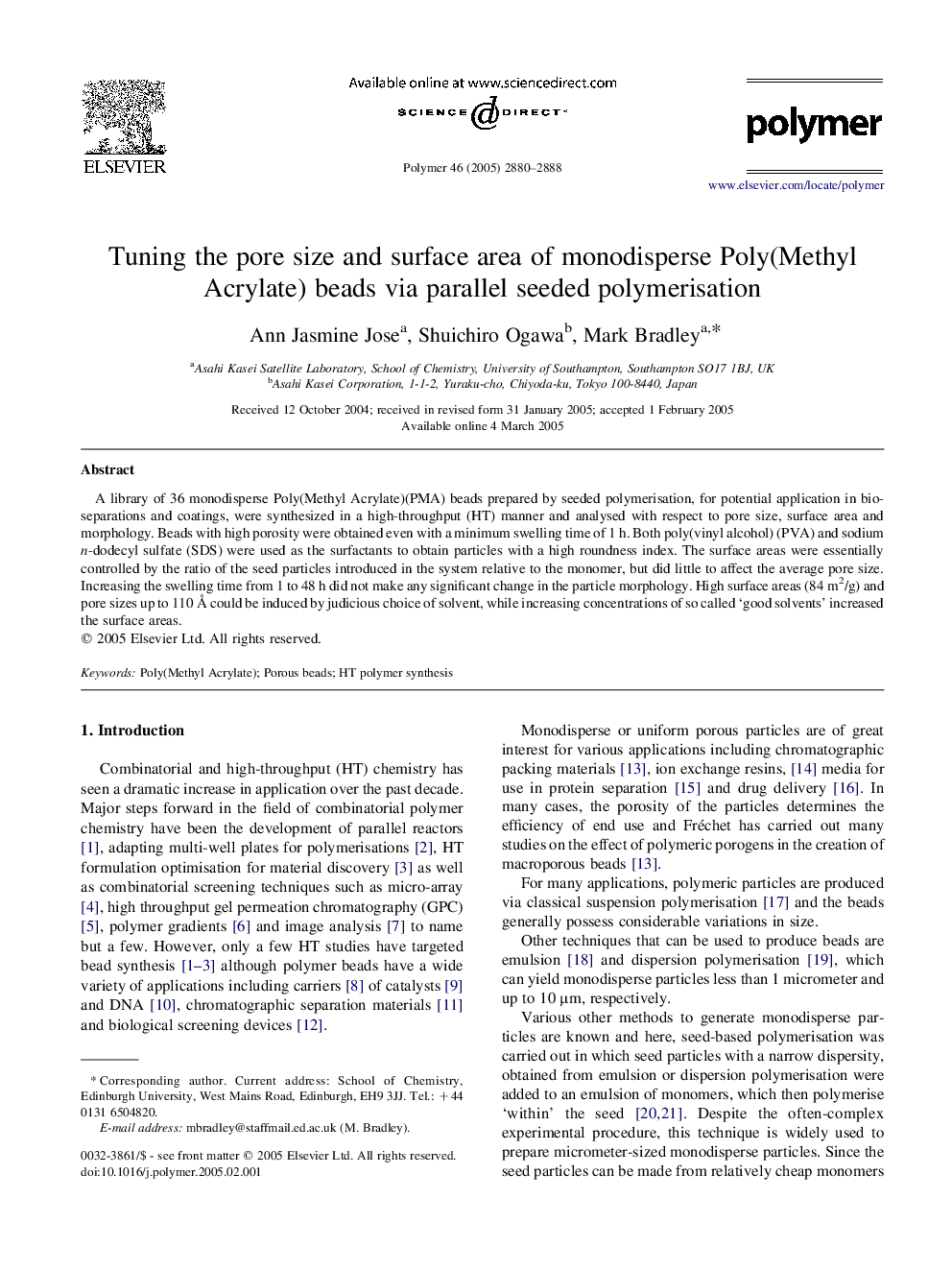| Article ID | Journal | Published Year | Pages | File Type |
|---|---|---|---|---|
| 5190099 | Polymer | 2005 | 9 Pages |
A library of 36 monodisperse Poly(Methyl Acrylate)(PMA) beads prepared by seeded polymerisation, for potential application in bio-separations and coatings, were synthesized in a high-throughput (HT) manner and analysed with respect to pore size, surface area and morphology. Beads with high porosity were obtained even with a minimum swelling time of 1Â h. Both poly(vinyl alcohol) (PVA) and sodium n-dodecyl sulfate (SDS) were used as the surfactants to obtain particles with a high roundness index. The surface areas were essentially controlled by the ratio of the seed particles introduced in the system relative to the monomer, but did little to affect the average pore size. Increasing the swelling time from 1 to 48Â h did not make any significant change in the particle morphology. High surface areas (84Â m2/g) and pore sizes up to 110Â Ã could be induced by judicious choice of solvent, while increasing concentrations of so called 'good solvents' increased the surface areas.
